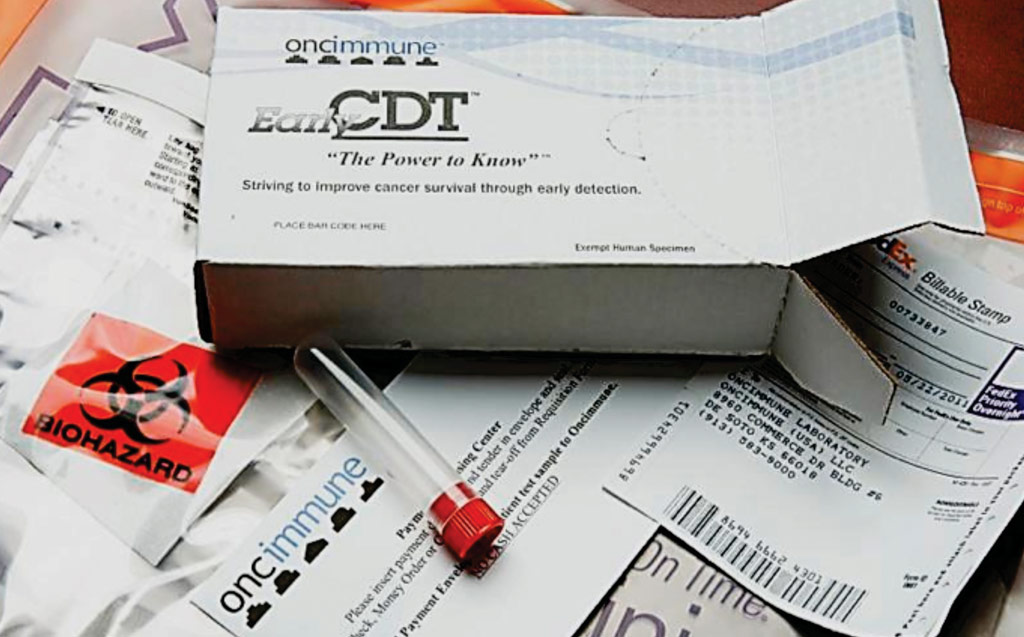Blood Test Leads to Earlier Detection of Lung Cancer
By LabMedica International staff writers
Posted on 11 Jan 2017
A new blood test has been developed that can accurately detect antibodies to lung cancer cells at an early stage, potentially up to five years before traditional scans show any damage.Posted on 11 Jan 2017
In the UK, only one in six lung cancer patients have surgery which is low compared to other countries, but this audit reveals that early survival rate is very high, with 96% of patients living beyond 90 days, which is very encouraging for both patients and health professionals alike.

Image: The Early CDT-Lung is a simple blood test for risk assessment and detection of early lung cancer (Photo courtesy of Oncimmune).
The largest ever randomized trial for lung cancer screening using the blood test in a population of approximately 12,000 high risk participants has been under taken with adults aged 50 to 75 years who are at high risk of lung cancer due to smoking heavily for 20 years or more, or due to a family history of lung cancer. Of these, 6,000 had the blood test for autoantibodies, and 6,000 received regular diagnosis and care. The study is now following study participants over a two year period to find out if this test can reduce the incidence of patients with late stage lung cancer (Stage III or IV) compared with routine care.
The blood test is called Early CDT-Lung (Oncimmune, De Soto, KS, USA). The early results show that that nearly 1 in 10 (9.8%) of the group who received the blood test (approximately 6,000 people at higher risk of lung cancer) had results indicating antibodies present. These individuals were then investigated further with a chest x-ray and serial computerized tomography (CT) scans to look for signs of lung cancer. To date, 16 cases of lung cancer have been diagnosed; three quarters of these were at an early stage. This is higher than expected from current clinical experience. Although these results are encouraging, it is too early to say whether the study will change clinical practice as the final results will only be available once data from participants in the control group are available and economic analysis is performed.
Stuart Schembri, MD, Honorary Senior Lecturer, University of Dundee (UK) and Co-Chief Investigator of the study, said, “Lung cancer is a serious and life threatening illness and our best hope for successful treatment is to detect it as early as possible. This test allows us to scan from a much more informed position and removes the stress around many patients unnecessarily having to go through a CT scan. But most importantly, we feel it may help us to detect lung cancer in its earliest stages when we have an improved chance of successful treatment.” The study was presented on December 9, 2016, at the British Thoracic Society (BTS) Winter Meeting held in London, UK.
Related Links:
Oncimmune
University of Dundee













